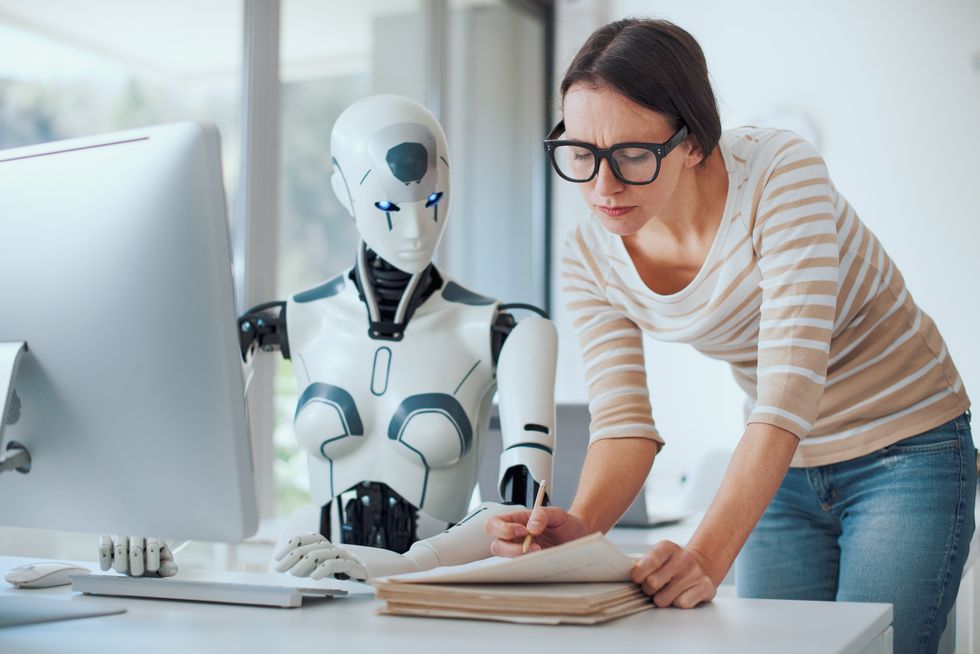Artificial intelligence is here to stay, and while some have embraced the technology, others are understandably worried about its swift evolution and how it can potentially impact our livelihood.
Well now, according to a new study by the World Economic Forum (WEF), the inevitable is near with claims that some jobs are at risk of an AI takeover by the year 2030.
In the Future of Jobs Report 2025, experts provided critical insights into how technology, particularly AI and automation, is reshaping industries and labour markets across the world.
They predicted that 22 per cent of today's total jobs will be impacted, through job creation or destruction.
"This is expected to entail the creation of new jobs equivalent to 14 per cent of today’s total employment, amounting to 170 million jobs," the WEF explained. "However, this growth is expected to be offset by the displacement of the equivalent of 8 per cent (or 92 million) of current jobs, resulting in net growth of 7 per cent of total employment, or 78 million jobs."

According to the report, clerical and secretarial roles are among the most vulnerable to AI, with positions like cashiers, ticket clerks, admin assistants, and executive secretaries expected to experience the "largest decline in absolute numbers".
These jobs, which typically involve manual tasks, are increasingly being replaced by AI, robotic process automation (RPA), and self-service technologies. Similarly, postal service clerks, bank tellers, and data entry clerks are also at risk of drastic reductions, as digital systems take over these traditionally human-driven tasks.
However, the report highlights a bright spot for frontline workers.
Roles in industries such as delivery, construction, farming, and food processing are expected to grow significantly in the coming years. These jobs require human oversight, problem-solving, and hands-on work that is difficult for AI and machines to fully replicate.
The care sector is another area expected to remain largely unaffected. Jobs like nurses, counsellors, teachers, and social workers all rely heavily on empathy, interpersonal skills, and human judgment – traits that AI is still far from replicating.
It comes after a growing trend continues to take over social media, in which people are turning to AI bots for free therapy.
Doctors offered their candid thoughts on the matter, expressing that while AI tools may seem like a quick fix, nothing beats the support and guidance of a real person who truly understands your needs.
How to join the indy100's free WhatsApp channel
Sign up for our free Indy100 weekly newsletter
Have your say in our news democracy. Click the upvote icon at the top of the page to help raise this article through the indy100 rankings.
 11 hours ago
1
11 hours ago
1




















 English (US) ·
English (US) ·